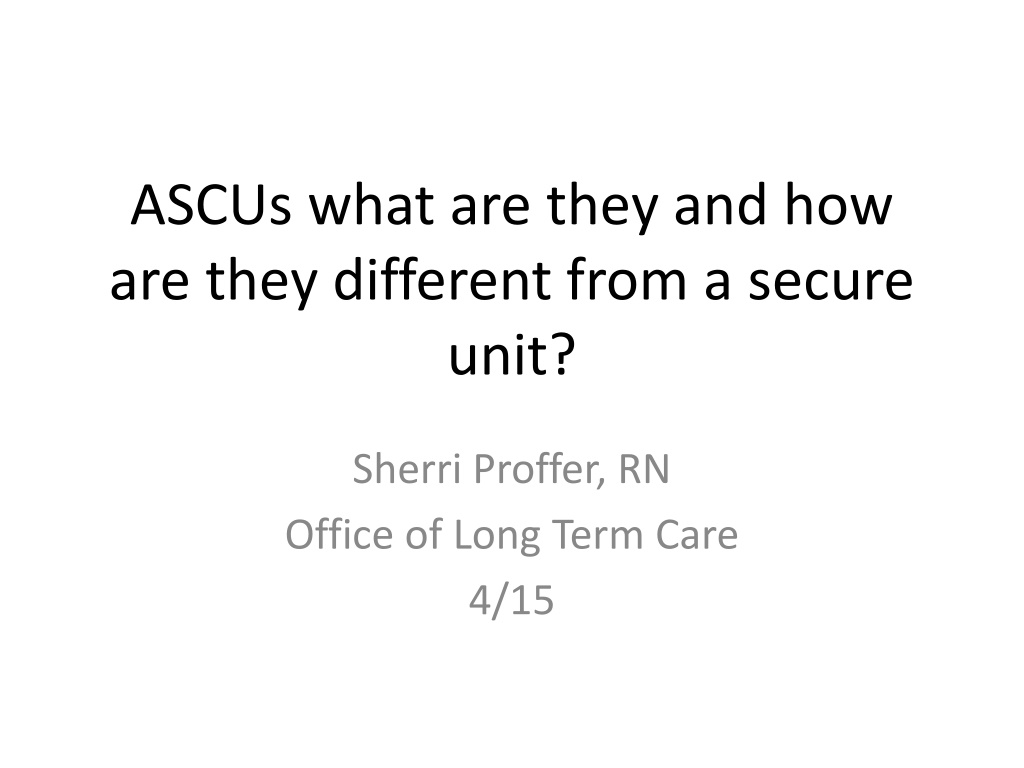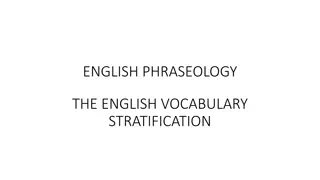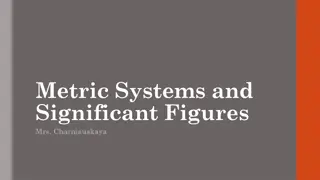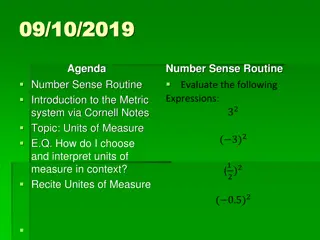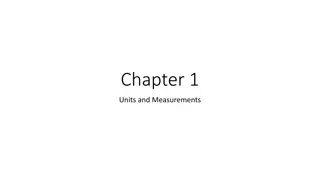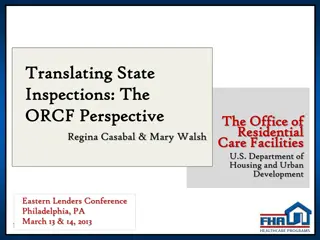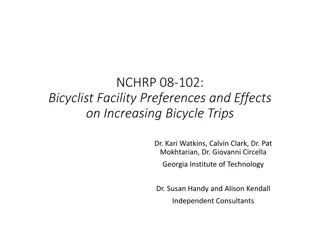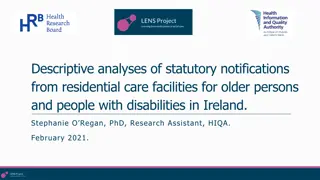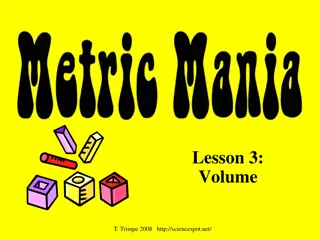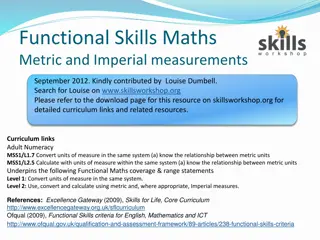Understanding ASCUs: How They Differ from Secure Units in Care Facilities
ASCUs (Alzheimer's Special Care Units) have specific requirements to ensure residents receive appropriate care and services. They differ from secure units by focusing on resident-centered care, specialized training, and maintaining detailed records. Facilities advertising as ASCUs must adhere to guidelines set by regulatory authorities to protect consumers and ensure quality care.
Download Presentation

Please find below an Image/Link to download the presentation.
The content on the website is provided AS IS for your information and personal use only. It may not be sold, licensed, or shared on other websites without obtaining consent from the author. Download presentation by click this link. If you encounter any issues during the download, it is possible that the publisher has removed the file from their server.
E N D
Presentation Transcript
ASCUs what are they and how are they different from a secure unit? Sherri Proffer, RN Office of Long Term Care 4/15
ACT 500 of 2001 AN ACT TO REVISE THE ALZHEIMER S SPECIAL CARE STANDARDS ACT; AND FOR OTHER PURPOSES. Subtitle AN ACT TO REVISE THE ALZHEIMER S SPECIAL CARE STANDARDS ACT.
ACT 500 Provide for the protection of consumers regarding the accuracy and authenticity of an ASCU Provide the care that they claim to offer and keep records of such claims. Authorizes OLTC to examine their performance and provide penalties as the agency deems appropriate. Hold the facility accountable for advertising as an ASCU.
ACT 500 Facility advertises as having an ASCU. Required to have a disclosure statement approved by OLTC and shall: Be offered to all persons seeking placement in the ASCU Explain the treatment philosophy and mission State admission/discharge criteria, staffing patterns, and specific training Ensure a safe physical environment Provide resident specific activities Costs
ACT 500 IF the unit does not meet those specific requirements OLTC shall instruct the facility to immediately stop advertising as an ASCU. If the facility refuses to comply with OLTC s instructions, OLTC may sue or site the facility with enforcement Civil Money Penalties.
Specific ASCU Requirements Regardless of other policies or procedures developed by the facility, the ASCU will have specific policies and procedures regarding: Resident Record Maintenance The ASCU shall develop and maintain a record-keeping system that includes a separate record for each resident, and that documents each resident s health care, individual support plan, assessments, social information, and protection of each resident s rights. Facility philosophy related to the care of ASCU residents; Use of ancillary therapies and services; Basic services provided; Psychosocial and Physical Assessments Admission, discharge, transfer; and Each resident shall receive a psychosocial and physical assessment which includes the resident s degree or level of family support, level of activities of daily living functioning, cognitive level, behavioral impairment, and that identifies the resident s strengths and weaknesses. Prior to admission to the ASCU, the applicant must be evaluated by, and have received from a physician, a diagnosis of Alzheimer s or related dementia. Activity programming.
Specific ASCU Requirements Individual Assessment Team (IAT) Individual Support Plan (ISP) Within 30 days after admission, the IAT shall prepare for each resident an individual support plan. The ISP shall address specific needs of, and services required by, the resident resulting from the resident s Alzheimer s disease or related dementia. The ISP shall include a family and social history. Individual support plans shall be developed and written by the IAT and signed by each member of the team. The IAT shall perform accurate assessments or reassessments annually, and upon a significant change to a resident s physical, mental, emotional, functional, or behavioral condition or status in which the resident: Individual support plans shall have the input and participation of the resident or his or her responsible party, and the resident s family. The ISP shall be reviewed, evaluated for its effectiveness, and up-dated at least quarterly, and shall be updated when indicated by changing needs of the resident Is regressing in, or losing skills, already gained Is failing to progress toward or maintain identified objectives in the ISP A copy of the ISP shall be made available to all staff that work with the resident, and the resident or his or her responsible party. Is being considered for changes in the resident s ISP
Specific ASCU Requirements The ISP shall include: It is the intent of these regulations that Alzheimer s Special Care Units shall be designed to accommodate the complex and varied needs of residents with dementia. The physical environment does not exist in isolation, but interacts with the activity program, level of resident capability, staffing and social milieu of the unit. Expected behavioral outcomes; All barriers to expected outcomes; Services, including frequency of delivery, designed to achieve expected behavioral outcomes; The environment shall be designed and developed to meet the following objectives: Methods of assessment and monitoring. Monitoring shall occur no less than quarterly to determine progress toward the outcome; and, Maximize awareness and orientation; Ensure safety and security; Provide privacy and a sense of control; Documentation of results from services provided, and achievement towards expected outcomes or regression, and reasons for the regression. Support functional abilities; and, Develop environmental stimulation and challenge within a positive social milieu. The resident s likes, dislikes, and if appropriate, his or her choices.
Specific ASCU Requirements In addition to the physical design standards required for the facility s license, an Alzheimer s Special Care Unit shall include the following: Prohibit the use of plants that are poisonous or toxic for human contact or consumption; Visual contrasts between floors and walls, and doorways and walls, in resident use areas. Except for fire exits, exit doors and access ways shall be designed to minimize contrast, and to obscure or conceal areas the residents should not enter; A floor plan design that does not require visitors or staff to pass through the ASCU to reach other areas of the facility; A multipurpose room or rooms for dining, group and individual activities, and family visits, which complies with the LTC licensure requirements for common space; Non-reflective floors, walls, and ceilings, to minimize glare; Evenly distributed lighting, to minimize glare and shadows; and, Secured outdoor space and walkways that allow residents to ambulate, with or without assistive devices such as wheelchairs or walkers, but prevents undetected egress. Such walkways shall meet the accessibility requirements and fencing shall be no less than 72 inches high. A monitoring or nurses station with: A call system, to alert staff to any emergency needs of the residents; and, A space for charting, and for storage of residents' records.
Specific ASCU Requirements Egress Policies Locking Devices The Alzheimer s Special Care Unit shall develop policies and procedures to deal with residents who wander or may wander. The procedures shall include actions to be taken by the facility to: All locking devices used on exit doors shall be approved by the OLTC, building code agencies, and the fire marshal having jurisdiction over the facility, shall be electronic, and shall release upon activation of the fire alarm or sprinkler system. Identify missing residents; If the unit uses keypads to lock and unlock exits, directions for the keypad's operations to allow entrance shall be posted on the outside of the door. Notify all individuals or institutions that require notification under law or regulation when a resident is missing; and, The keypads and locks shall meet the under IBC applicable to Level II Assisted Living Facilities. Attempt to locate the missing resident. Staff shall be trained in all methods of releasing, or unlocking, the locking device.
Specific ASCU Requirements Offer or encourage participation in monthly family support group meetings with documentation of meetings offered; and, Alzheimer s Special Care Units shall staff according to the Rules and Regulations for Nursing Facilities. Furthermore, the following staffing requirements are established for Alzheimer's Special Care Units. Professional Program Services Assist in development of the ISP, including but not limited to: A social worker or other professional staff, e.g., physician, Registered Nurse, or Psychologist currently licensed by the State of Arkansas, shall be utilized to perform the following functions: Assuring that verbal stimulation, socialization and reminiscing is identified in the ISP as a need; Defining the services to be provided to address those needs identified above; and, Complete an initial social history evaluation on each resident on admission; Develop, coordinate, and use state or national resources and networks to meet the needs of the residents or their families; Identifying the resident's preferences, likes, and dislikes
Specific ASCU Requirements Staff and Training On-going, in-service training consisting of at least two (2) hours every quarter. The topics to be addressed in the in-service training shall include the following, and each topic shall be addressed at least once per year: All ASCU staff members and consultants shall have the training specified in these regulations in the care of residents with Alzheimer s Disease and other related dementia. The facility shall maintain records documenting Trainer Requirements The individual providing the training shall have: A minimum of one (1) year uninterrupted employment in the care of Alzheimer s residents; Training in the care of individuals with Alzheimer s disease and other dementia; or, Been designated by the Alzheimer s Arkansas Program and Services or the Alzheimer s Association or its local chapter as being qualified to meet training requirements. Within six (6) months of the date that the long-term care facility first advertises or otherwise the facility shall have trained all staff who are scheduled or employed to work in the ASCU. Subsequent to the requirements set forth in Section 905(b)(2), fifty percent (50%) of the staff working any shift shall have completed requirements as set forth in Section 905(b)(5)(a), (b), and (c).
Specific ASCU Requirements Therapeutic activities can improve a resident s eating or sleeping patterns; lessen wandering, restlessness, or anxiety; improve socialization or cooperation; delay deterioration of skills; and improve behavior management. Therapeutic activities shall be designed to meet the resident's current needs. The ASCU shall: Provide activities appropriate to the needs of individual residents. The activities shall be provided and directed by direct care staff under the coordination of a program director. Ensure that each resident's daily routine is structured or scheduled so that activities are provided seven days a week. Utilize or contract with a professional with specialized training in the care of Alzheimer s to: Develop required daily activities, as set forth in Section 907(b); Train direct care staff in those programs; and, Provide ongoing consultation.
Specific ASCU Requirements Required Daily Activities The following activities shall be offered daily: Gross motor activities (e.g., exercise, dancing, gardening, cooking, etc.); Self-care activities (e.g., dressing, personal hygiene, or grooming); Social activities (e.g., games, music, socialization); and, Sensory enhancement activities (e.g., reminiscing, scent and tactile stimulation).
Differences Between ASCU and Secure Unit The facility does not have to provide a disclosure statement telling the resident what services the facility provides. The facility does not have to provide additional dementia training to staff in regard to care for residents with Alzheimer s or dementia. The facility does not have to screen and disclose specific admission and discharge criteria. The facility does not have to provide specific individualized care planning geared toward the resident maintaining skills as long as possible. The facility does not have to provide specific daily activities geared towards residents with dementia. The facility cannot advertise or hold themselves out to providing specialized care to individuals with Alzheimer s or dementia.
